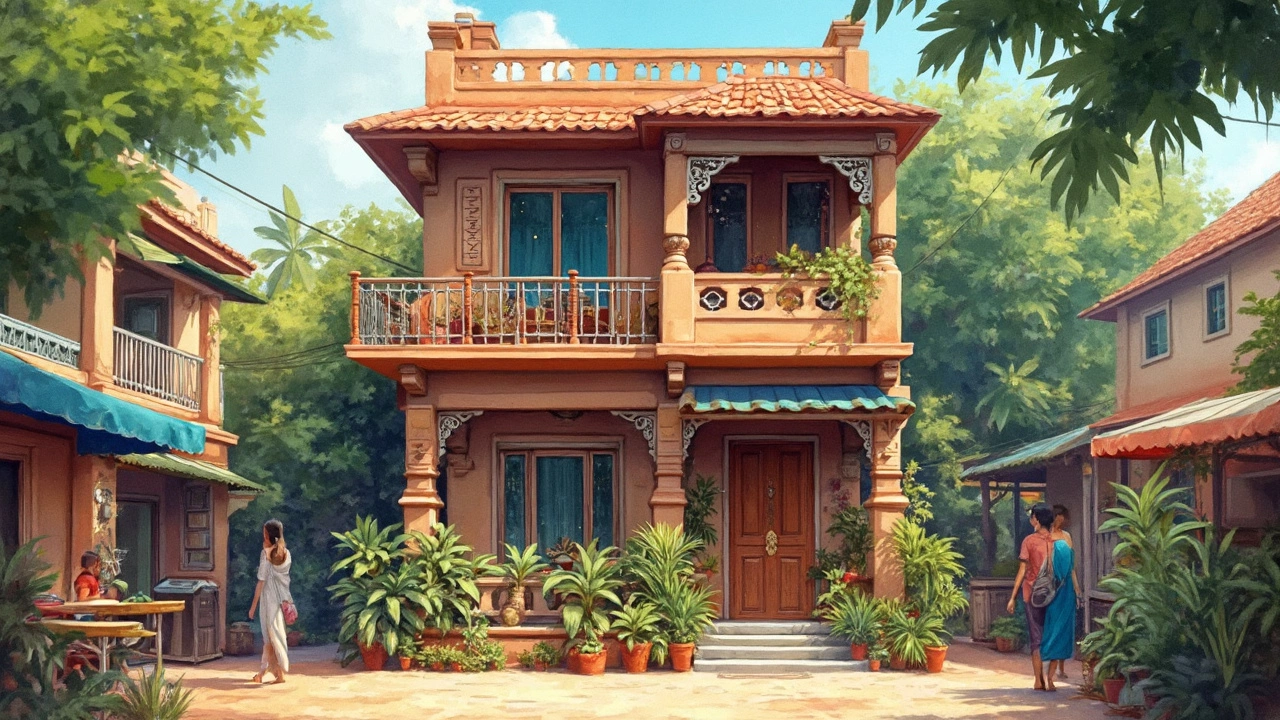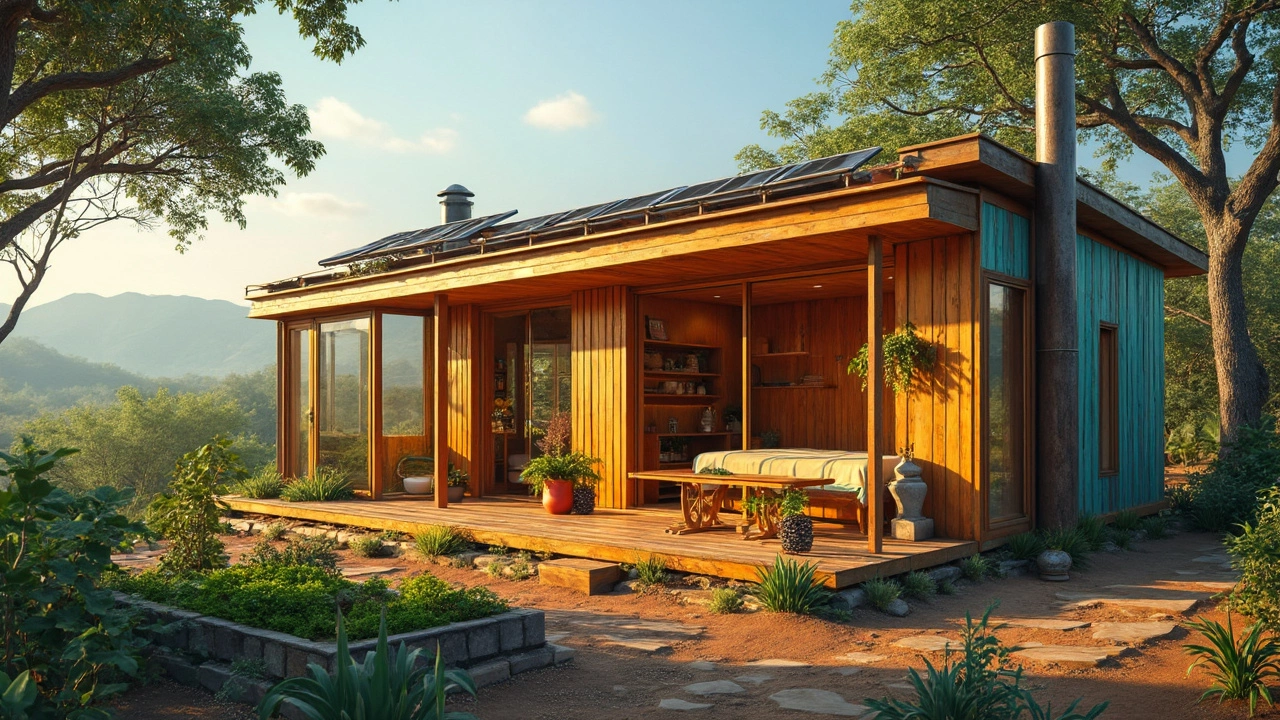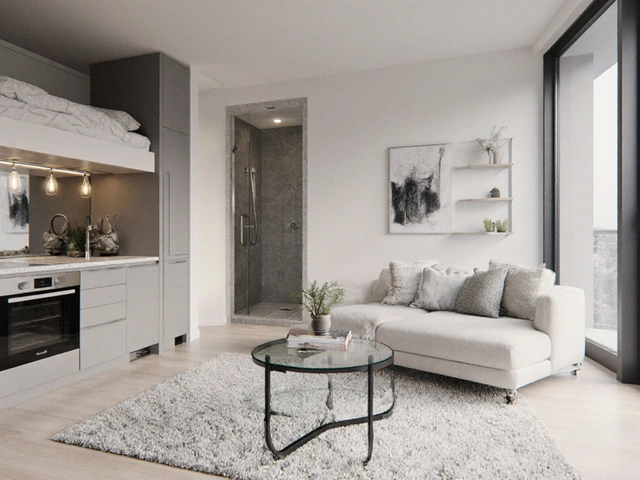Smaller Than a Villa: Exploring Compact Alternatives

If you're on the hunt for something smaller than a sprawling villa, you're in luck. Compact homes are all the rage these days, and for good reason. They pack a punch in terms of charm, practicality, and often, affordability. But what exactly are these options, and why should you consider them?
First things first, a villa typically suggests a large, luxurious home with amenities galore. But let's shift gears. Imagine petite powerhouses like townhouses, cottages, or even modern marvels like tiny homes. These aren't just about downsizing; they're about optimizing. Perfect for those craving coziness without sacrificing style.
- What Defines a Villa?
- Compact Living: Types of Alternatives
- Benefits of Smaller Spaces
- Cost Considerations
- Choosing the Right Option for You
What Defines a Villa?
When you hear the word "villa," images of lavish homes with expansive gardens probably pop into your head, right? Well, you're not far off. A villa is often seen as a statement of luxury and elegance. But let's dig a bit deeper to get a clearer picture.
Villas typically boast spacious layouts, offering a blend of both indoor and outdoor living spaces. They're often stand-alone structures, providing plenty of privacy and seclusion, which is a big selling point. Think of them as the ultimate dream home that caters to every comfort you could imagine.
Key Features of Villas
- Space: Villas are known for their generous floor areas, often exceeding that of an average house. You'll find everything from multiple bedrooms, formal and casual living rooms, to home offices and entertainment areas.
- Amenities: Private pools, expansive terraces, and lush gardens are not uncommon. Many villas come equipped with high-end features that cater to a luxurious lifestyle.
- Location: They're often situated in picturesque locations. Imagine coastal getaways, serene countryside estates, or prime city spots. The location itself adds to the villa's appeal.
In a nutshell, a villa isn't just a home. It's an experience—one that offers space, style, and a whole bag of creature comforts. So, if your life demands grandeur, a villa might be your ideal match. But if you're looking for something smaller or more manageable, it's time to consider the compact alternatives.
Compact Living: Types of Alternatives
When it comes to small but mighty homes, you've got a bunch of options worth considering. Let's break down a few standout choices that are making waves in the housing market.
1. Townhouses
Townhouses are a sweet spot for many buyers. They offer the vertical space of a multi-level home without taking up a massive footprint. The cool thing about townhouses is that they often come in clusters, forming tight-knit communities. You get a good balance of privacy and neighborly vibes. These are often easier on the budget too, compared to detached homes.
2. Cottages
There's something special about cottages. Maybe it's the cozy feel or the charm factor. These aren't your typical fairytale homes, though. Modern cottages pack functionality into clever layouts, making restricted space highly usable. Ideal for those who want a retreat-like ambiance.
3. Tiny Homes
If you're really on board with the minimalist lifestyle, tiny homes could be your best bet. We're talking about homes often under 400 square feet, yet packed with everything you need. They're eco-friendly, cost-effective, and can be customized in endlessly creative ways. Plus, you can tow them around if they’re on wheels. How’s that for flexibility?
4. Micro-Apartments
Micro-apartments are booming in urban areas where space is a premium. Think cleverly designed studios that often can be as small as 200-300 square feet. Compact living at its finest. Many come with access to shared spaces like lounges or gyms, mixing private living with communal perks.
5. Duplexes
Want a bit more room and maybe an income opportunity? Duplexes offer two living spaces in one building. You can occupy one half and rent out the other—better on the wallet and a way to reduce housing expenses.
If you're curious about the impact of these living choices, consider this: A survey found that 68% of people downsizing reported increased happiness and reduced stress levels. Folks are living comfortably in less space, spending less money, and feeling more connected—without the hulking responsibility of a villa.

Benefits of Smaller Spaces
Thinking small might seem counterintuitive, especially when buying property, but compact living packs in more advantages than you’d imagine. There's a reason why minimalism has caught on like wildfire. Smaller spaces often mean a smaller footprint—both in terms of carbon and physical space.
Cost Savings
One of the big draws? The cost. Simply put, you'll often spend less on a smaller home. Not only are the price tags generally lower than that of a villa, but maintenance and utility bills tend to shrink as well. You're less likely to overbuy and overheat, saving some serious cash every month. Imagine redirecting those funds towards other activities or investments.
Easy Maintenance
Who loves endless chores? Not many people. Smaller homes mean quicker cleaning and fewer repairs. Gardens tend to be more manageable too—great news if green thumbs aren't your thing. Forget spending your entire weekend tidying up. Instead, you can enjoy your free time doing what you actually love.
Environmental Impact
Less space, less energy—sounds like a win for the planet, right? Smaller homes require fewer resources, both in construction and operation. Heating, cooling, and lighting a compact home take less energy, translating to a smaller carbon footprint. Consider it a simple step towards a more sustainable lifestyle.
Immunity to Clutter
Living in a smaller space nudges you towards simplicity. You learn to let go of unnecessary stuff. With less room to fill, you'll become a pro at prioritizing what truly matters. It might feel like freedom through less stuff—and that's a pretty empowering feeling.
- Cost-efficient: Save on purchase, bills, and upkeep.
- Easy to maintain: Less cleaning, fewer repairs.
- Eco-friendly: Smaller carbon footprint.
- Decluttered lifestyle: Keep only what you need and value.
All in all, having a smaller place doesn't mean cutting back. Instead, it offers a way to live smarter and more efficiently, reaping benefits that extend far beyond square footage.
Cost Considerations
When looking at options for something smaller than a villa, understanding the financial side is crucial. These compact living choices often mean a lighter load on your wallet, but it’s not just the sticker price you should be thinking about.
Purchase Price
Generally, homes like townhouses or tiny homes cost less than a full-blown villa. This can be a big advantage if a lower upfront investment is what you need.
Running Costs
Smaller homes often come with reduced utility costs. Less space to heat and cool means you often save on energy bills. Plus, maintenance is usually less involved and cheaper, making life easier and saving you more.
In some cases, you might encounter community fees if your home is within a shared property like a townhouse complex. These can cover everything from basic maintenance to amenities.
Potential for Savings
Investing in a smaller home can free up finances for other adventures. Whether it's bolstering your travel fund or boosting your savings account, spending less on your home can create financial flexibility.
Consider too, the resale value. Tiny homes and other compact properties have been gaining popularity, making them an intriguing investment option.
To give you a snapshot of what the cost landscape looks like, here's a rough comparison:
| Property Type | Average Cost (NZD) |
|---|---|
| Traditional Villa | $1,200,000+ |
| Townhouse | $700,000 - $900,000 |
| Tiny Home | $150,000 - $300,000 |
Ultimately, choosing a smaller place boils down to more than just financials. It's about what lifestyle you're after and how you picture your day-to-day. But if cash flow is a key focus, downsizing from a villa is definitely worth considering.

Choosing the Right Option for You
Trying to figure out which home fits you best? Let's get into some specifics. It's not just about the size but how it fits your lifestyle!
Think About Your Daily Routine
Your daily activities can be a big clue. Do you love hosting get-togethers? Townhouses often offer more space for such events. Or maybe you're always on the go, then perhaps a low-maintenance tiny home could suit you.
Budget & Costs
Not surprisingly, price is a major factor. Smaller homes usually have a smaller price tag, but don't forget about other costs like maintenance and utilities. To give you a better idea, here’s a rough comparison:
| Home Type | Average Cost (USD) | Maintenance Cost (Yearly) |
|---|---|---|
| Cottage | 250,000 | 3,000 |
| Tiny Home | 75,000 | 1,000 |
| Townhouse | 350,000 | 5,000 |
Location & Space Needs
Are you tied to a particular city or district due to work or family? Some areas favor certain types of homes, like cities with more compact living options due to limited space.
Future Plans
Are you planning to expand your family or start a home office? It's crucial to think ahead. A smaller property might not support future needs like additional rooms.
- Reflect on lifestyle preferences.
- Assess your financial situation.
- Consider location requirements.
- Plan for future needs.
Ponder these points, and you'll be well on your way to finding a home that's not only smaller than a villa but the perfect fit for you!









Write a comment